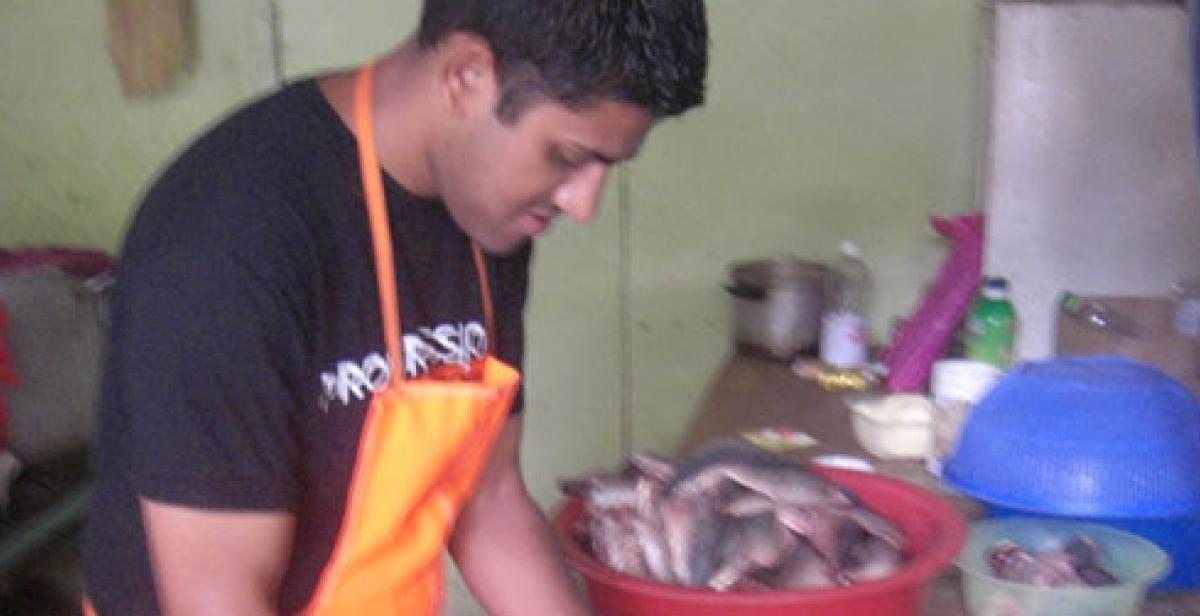ICS volunteer Monju Meah reflects on some of the challenges of international development:
Around 60 years since the Universal Declaration of Human Rights was created poverty still exists, people are still hungry and are dying from preventable diseases.
Cindy Klose is a former Progressio development worker in Peru who has been working and living in the country for over 7 years. Acting as guest speaker at our Peru volunteer orientation she explained how she has previously worked on environmental issues and climate change.
Cindy’s presentation for me was the best, she was incredibly inspiring and showed me a side of international development I have never seen before nor thought about, and the huge number of different problems you face as a development worker.
One of the challenges she spoke about was that sometimes people do not help themselves because they are not are aware of how to help themselves. They may feel that they already have everything they need to survive and everything they have is enough.
So one may think that a straw house is okay to live in, but if they knew about tin and other materials, which last longer, they would be more active in improving their homes. In addition to HELPING to build we should also TEACH people. Make them aware of alternatives and show them ways they can change their lives for the better. And they must feel empowered to do so.
Sustainability was a major topic of the talk and also the questioning of whether NGOs deliver what beneficiaries need. Cindy posed some questions to us:
- What happens after you have finished your project and are gone?
- How are people going to sustain progress when you are gone?
- Will your project create any problems for the community?
Cindy gave an example about an NGO that installed an irrigation system but did not carry out any maintenance training with the people it was for or assess the social conditions. So when the system needed repair the beneficiaries were unable to adequately resolve the problem.
During the same project a pump was installed so people could get a source of clean water. This was installed near to the Mayor's home so that his family members could get access to it easily, and so it created tensions among the community.
When thinking about international development you need to think about many different factors including the socio-cultural, economic, political, environmental and a multitude of others when planning a project. Something that seems clear-cut and the obvious solution may not actually work, or may need to be adapted to the local conditions.
When Cindy advised us to think of the different factors it got me thinking about what I had learnt from Business Management (BA Hons) and Strategic Planning and Investment (MSc) and this kind of thinking felt very familiar.
One of the modules during my masters was International Business Strategy and a key message from this was when setting up a company in another country, you have to adapt to different factors in the market, a one-size fits all strategy may not work.
The talk also reminds me of what my strategy lecturer said about innovation and running a company:
‘Running a company is like running on a treadmill, you need to keep moving forward, continue to innovate just to stay in the same place. Once you go international and move into other markets then you are now on an incline. It is tougher to operate in those markets because you now have to cater for the different needs of the customers and different market factors.’
So carrying out international development work is like running a company and actually to me it seems a lot more complicated. I’m starting to bring in what I have learned in the past and if I can even utilise 20% of the material that I learnt from university in the work I am doing at the moment then it would be time well spent.
Monju Meah is with the ICS Progressio team in Villa El Salvador in Peru. In the photo, Monju is helping out at a comedor (soup kitchen).



